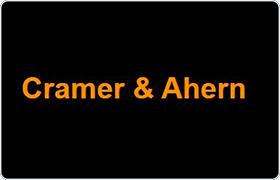 Stratford Real Estate Other Lawyers, Connecticut
Stratford Real Estate Other Lawyers, Connecticut
Sponsored Law Firm
-
 x
x

Click For More Info:
-
Cramer & Ahern
38 Post Rd Westport, CT 06880» view mapReal Estate Law A Law Firm You Can Trust
Our entire staff is dedicated to helping clients with their legal matters.
800-694-5101
Includes: Commercial Leasing, Commercial Real Estate, Condominiums, Conveyancing, Housing & Urban Development, Premises Liability, Residential Real Estate, Title Insurance
Lawyers
1-8 of 8 matches
Banking & Finance, Business Organization, Commercial Leasing, Conveyancing
Commercial Real Estate, Divorce, Bankruptcy, Personal Injury
Commercial Real Estate, Public Law, Business Organization, Business
Divorce & Family Law, Landlord-Tenant, Juvenile Law, Real Estate Other



 Allan Cramer Westport, CT
Allan Cramer Westport, CT Practice AreasExpertise
Practice AreasExpertise